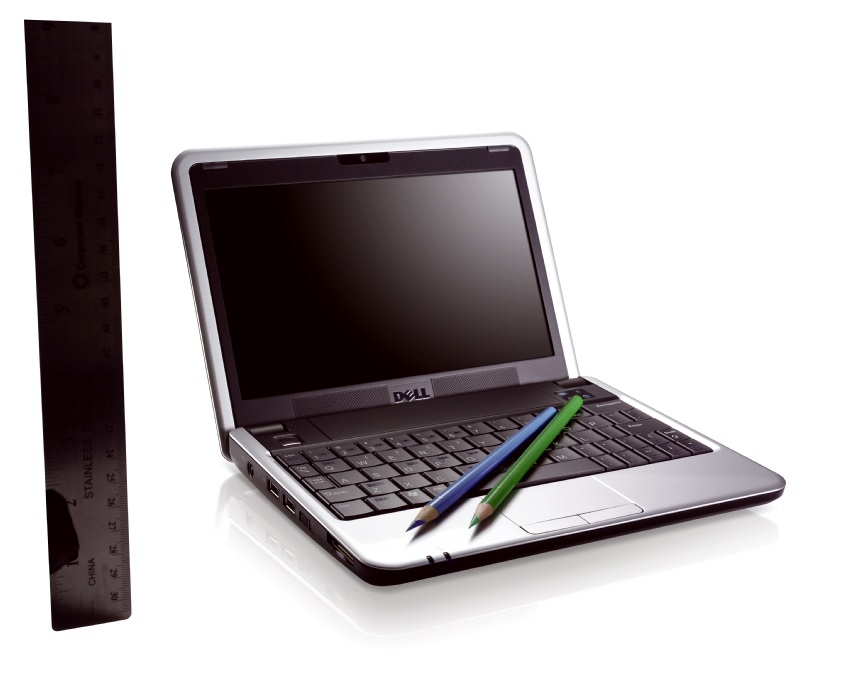Size does matter, admits JOHN HARRIS, especially when you’re choosing a new computer.
During the past year, while I’ve obsessed with my funky iPhone, a new device has become the hottest item on the technology block.
 Late last year, researchers Gartner and DisplaySearch released reports that claimed netbook sales had overtaken the fashionable iPhone. This research reported that while Apple sold 4.7 million iPhones during July-September last year, manufacturers flogged a remarkable 5.6 million netbooks in the same period.
Late last year, researchers Gartner and DisplaySearch released reports that claimed netbook sales had overtaken the fashionable iPhone. This research reported that while Apple sold 4.7 million iPhones during July-September last year, manufacturers flogged a remarkable 5.6 million netbooks in the same period.
If, like me, this latest technology wave has snuck up on you, the netbook is a portable computer that is much smaller than your bog-standard 2kg-plus notebook. Primarily designed, for wireless communication, email and web browsing, they boast small, high resolution screens, weigh as little as 1kg and cost much less than a regular notebook.
To make their battery last longer, netbooks usually run less demanding operating systems such as Linux or Windows XP.
The netbook wave started in 2007 when Taiwan-based launched its oddly-named Eee PC, a 1kg, Linux-powered PC sporting a seven-inch screen. As customers embraced this new computing form factor, other manufacturers piled in.
According to the DisplaySearch report, Acer won first place during the third quarter of last year, with 38.3 per cent market share, followed by Asus with 30.3 per cent. Third, fourth and fifth places went to HP, MSI and Dell respectively.
So I jumped at the chance to look at a Dell netbook when the opportunity was dangled in front of me by the PR folk for Vodafone, which is offering the device on a $59.95 a month, two-year contract.
Dell’s Inspiron Mini 9 is a spiffy unit: The model I borrowed was decked out like a dandy on Adelaide Cup day, with a gleaming white lid and dapper black base.
Running Windows XP and with a high-resolution 8.9-inch screen, it comes with a range of networking options including an Ethernet port, built-in 802.11g wireless networking and a Bluetooth mini-card.
To make it carrier-friendly, Vodafone’s Inspiron Mini 9 has a built-in 3G modem, allowing you to grab your monthly five-gig data quota.
Vodafone’s $59.95 monthly cost for the Mini 9 divvies into $39.95 a month for Vodafone’s 5GB mobile data plan and $20 a month to cover the netbook cost. Over the contract, this values it at $480. Dell offers the same model, without a 3G modem, on its website for $599.
Starting up the Inspiron Mini 9 was easy (which is not as common as you’d expect with computers) and Windows XP loaded snappily. It was also simple to connect to my home WiFi network and Vodafone’s 3G network, making this an ideal device for anyone on the run.
Bundled software includes Microsoft Works, McAfee Antivirus, Google Desktop and Dell Webcam, which supports the built-in web camera.
However, I was disappointed to find my fingers are too big for the netbook keys. As a touch typist for the past quarter century, I was reduced to hunt and peck in order to use the dainty keyboard. So I sought assistance from my intrepid sidekick, daughter Eden, whose nearly 10-year-old fingers are ideally sized for the keyboard.
Eden embraced the task eagerly and soon was loading up her favourite website, a Canadian virtual world for dolls called WebKinz, where she found the netbook’s limits. Despite setting its widescreen to maximum resolution, it was unable to display all the Flash-based screens used to create the interactive WebKinz world. For Eden, this was a deal breaker and she disdained using it again.
The Dell Inspiron Mini 9 is a neat unit that packs a lot of useful functions into a handbag size.
However, despite it being last year’s fashion item, I’ll stick to my iPhone for high portability mobile computing and retain my regular notebook for the full-screen, 10-digit computing experience.
John Harris is managing director of Impress Media Australia. You can view his website at www.johnharris.net.au.
Related News
- Apple’s consolation prize for iPhone users As rivals from Google to Palm seek a piece of its mobile action, Apple has launched a new version of its iPhone software. JOHN HARRIS checks it out.On Thursday last week, a message...
- Is it safe to upgrade your iPad to iOS 4? After a failed upgrade of his 3G iPhone to iOS 4, JOHN HARRIS trod cautiously before accepting Apple's brazen blandishments to install its latest software on his iPad.Tuesday start...
- Australia braces itself for broadband future As the Australia Government ponders who will build its proposed National Broadband Network, JOHN HARRIS asks if it's aiming high enough. This is a watershed year for broadband i...
- What’s the price to climb into the new Windows After a long-running public development process, Microsoft has launched its new version of Windows. JOHN HARRIS looks at what it will cost you. Windows 7 is now available, after si...












